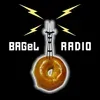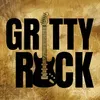Garage rock Live Radio Stations
Radio Stations
Choose a Genre
Garage Rock: The Raw, Rebellious Sound of the '60s
Garage rock, born in the United States during the mid-1960s, is a genre that captures the energy, rebellion, and raw spirit of youth culture. Known for its simplistic yet powerful sound, garage rock emerged as a reaction to the polished and commercialized mainstream rock music of the time. Often recorded in home studios or small local spaces, garage rock placed emphasis on high-energy performances and a do-it-yourself (DIY) aesthetic, reflecting the passion and drive of young musicians eager to make their mark.
The Origins of Garage Rock
The name "garage rock" directly stems from the genre’s humble beginnings in the garages of suburban America. In these informal settings, young musicians gathered with friends to create music that was unpolished and direct. This sense of authenticity was in stark contrast to the more refined and commercialized sound of mainstream rock bands of the era. Garage rock was heavily influenced by earlier forms of rock and roll such as rockabilly, surf rock, and rhythm and blues, but it pushed those genres’ boundaries, creating something entirely new and raw.
Key to the sound of garage rock were distorted guitars, driving drum beats, and energetic, often gritty vocals. The lyrics, frequently filled with themes of teenage rebellion, frustration, and angst, spoke to a generation that felt disconnected from mainstream culture. It was a genre for the underdog—young musicians and listeners who wanted music that mirrored their own defiance and individuality.
The Influence of Garage Rock
Though garage rock was relatively short-lived in its first wave during the 1960s, its influence is still felt in many sub-genres of rock music today. The DIY spirit and raw energy of garage rock laid the foundation for the development of punk rock, grunge, and indie rock. Its rebellious attitude and stripped-back sound would inspire generations of musicians to pick up instruments and make music on their own terms, without needing to fit into the expectations of the music industry.
Many of the bands from the garage rock era, such as The Sonics, The Seeds, The Standells, The Stooges, and The MC5, are still celebrated today as pioneers of the genre. Their contributions to garage rock continue to resonate, with their music being hailed as influential in shaping the sound of modern rock.
Garage Rock’s Legacy in Modern Music
While garage rock’s first wave may have been confined to the 1960s, its legacy has remained strong, influencing a variety of contemporary bands. Today, garage rock remains a vital part of the musical landscape, with many modern bands drawing inspiration from the genre’s raw, unrefined sound. Bands like The White Stripes, The Black Keys, and Arctic Monkeys have incorporated elements of garage rock into their music, bringing the genre’s signature distorted guitars and gritty vocals into the mainstream.
In addition to these well-known acts, many underground and indie bands are continuing to play and record music in the garage rock style. Artists like Ty Segall, Thee Oh Sees, King Tuff, and Shannon and The Clams have become synonymous with the modern garage rock revival, adding their own modern twists to the genre’s timeless energy.
The Enduring Popularity of Garage Rock
For music enthusiasts, garage rock remains an enduring favorite, particularly among fans of raw, unpolished sound. Radio stations dedicated to playing classic garage rock hits from the 1960s continue to enjoy popularity, keeping the genre's spirit alive for new generations of listeners. Garage rock’s emphasis on authenticity and rebellious energy continues to speak to music lovers who appreciate the genre's unsanitized, punk-like approach to rock music.
In conclusion, garage rock is more than just a genre—it's a movement that has had a profound impact on the evolution of rock music. Its simplicity, energy, and DIY ethos have influenced countless musicians and continue to inspire new acts today. The garage rock sound, with its themes of youthful rebellion and raw emotion, will undoubtedly remain a beloved and influential part of music history for years to come.
Garage rock, born in the United States during the mid-1960s, is a genre that captures the energy, rebellion, and raw spirit of youth culture. Known for its simplistic yet powerful sound, garage rock emerged as a reaction to the polished and commercialized mainstream rock music of the time. Often recorded in home studios or small local spaces, garage rock placed emphasis on high-energy performances and a do-it-yourself (DIY) aesthetic, reflecting the passion and drive of young musicians eager to make their mark.
The Origins of Garage Rock
The name "garage rock" directly stems from the genre’s humble beginnings in the garages of suburban America. In these informal settings, young musicians gathered with friends to create music that was unpolished and direct. This sense of authenticity was in stark contrast to the more refined and commercialized sound of mainstream rock bands of the era. Garage rock was heavily influenced by earlier forms of rock and roll such as rockabilly, surf rock, and rhythm and blues, but it pushed those genres’ boundaries, creating something entirely new and raw.
Key to the sound of garage rock were distorted guitars, driving drum beats, and energetic, often gritty vocals. The lyrics, frequently filled with themes of teenage rebellion, frustration, and angst, spoke to a generation that felt disconnected from mainstream culture. It was a genre for the underdog—young musicians and listeners who wanted music that mirrored their own defiance and individuality.
The Influence of Garage Rock
Though garage rock was relatively short-lived in its first wave during the 1960s, its influence is still felt in many sub-genres of rock music today. The DIY spirit and raw energy of garage rock laid the foundation for the development of punk rock, grunge, and indie rock. Its rebellious attitude and stripped-back sound would inspire generations of musicians to pick up instruments and make music on their own terms, without needing to fit into the expectations of the music industry.
Many of the bands from the garage rock era, such as The Sonics, The Seeds, The Standells, The Stooges, and The MC5, are still celebrated today as pioneers of the genre. Their contributions to garage rock continue to resonate, with their music being hailed as influential in shaping the sound of modern rock.
Garage Rock’s Legacy in Modern Music
While garage rock’s first wave may have been confined to the 1960s, its legacy has remained strong, influencing a variety of contemporary bands. Today, garage rock remains a vital part of the musical landscape, with many modern bands drawing inspiration from the genre’s raw, unrefined sound. Bands like The White Stripes, The Black Keys, and Arctic Monkeys have incorporated elements of garage rock into their music, bringing the genre’s signature distorted guitars and gritty vocals into the mainstream.
In addition to these well-known acts, many underground and indie bands are continuing to play and record music in the garage rock style. Artists like Ty Segall, Thee Oh Sees, King Tuff, and Shannon and The Clams have become synonymous with the modern garage rock revival, adding their own modern twists to the genre’s timeless energy.
The Enduring Popularity of Garage Rock
For music enthusiasts, garage rock remains an enduring favorite, particularly among fans of raw, unpolished sound. Radio stations dedicated to playing classic garage rock hits from the 1960s continue to enjoy popularity, keeping the genre's spirit alive for new generations of listeners. Garage rock’s emphasis on authenticity and rebellious energy continues to speak to music lovers who appreciate the genre's unsanitized, punk-like approach to rock music.
In conclusion, garage rock is more than just a genre—it's a movement that has had a profound impact on the evolution of rock music. Its simplicity, energy, and DIY ethos have influenced countless musicians and continue to inspire new acts today. The garage rock sound, with its themes of youthful rebellion and raw emotion, will undoubtedly remain a beloved and influential part of music history for years to come.





